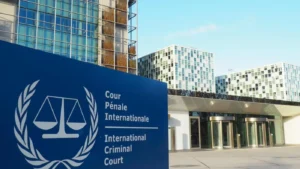UN Security Council demands halt to Houthi in Red Sea amidst growing tensions

The United Nations Security Council passed a resolution urging Yemen’s Houthi rebel group to cease its aggressive actions in the Red Sea. The resolution gained overwhelming support with 11 votes in favor, 0 against, and four abstentions, including Russia and China.
The Houthi militants, backed by Iran, have been conducting a sustained campaign of launching drones and missiles at vessels in the strategically crucial shipping lane, justifying their actions as retaliation against Israel’s military operations in Gaza.
Amidst escalating tensions, the United States and Britain issued warnings of potential military strikes against the Houthi group. US Secretary of State Antony Blinken, currently on a diplomatic tour in the region, emphasized that there would be consequences for the continued attacks. The Red Sea, home to Operation Prosperity Guardian involving over 20 nations, is a vital waterway where the US and other nations have deployed ships to safeguard commercial shipping.
The UN resolution specifically condemned approximately two dozen Houthi attacks on merchant vessels since November 19, highlighting the seizure of the commercial vessel, Galaxy Leader. US Ambassador to the UN Linda Thomas-Greenfield attributed the Houthi actions to Iran’s support and stressed the resolution’s demand for adherence to international law.
In response to the UN vote, Mohamed Ali al-Houthi, a member of the Supreme Political Council and former head of Yemen’s Houthi Supreme Revolutionary Committee, defended the group’s actions, framing them as legitimate defense. Al-Houthi accused the US, Britain, and Israel of violating international law in their response to the conflict in Gaza.
The passing of the resolution follows a series of Houthi attacks, with the US and British navies intercepting 21 missiles and drones on Tuesday. The involvement of three US guided-missile destroyers, F/A-18 fighter jets, and the UK’s Royal Navy’s HMS Diamond underscored the gravity of the situation. British Defense Secretary Grant Shapps warned of potential consequences, emphasizing the commitment to protecting innocent lives and the global economy. The Red Sea remains a precarious flashpoint, heightening concerns about a broader regional conflict.








